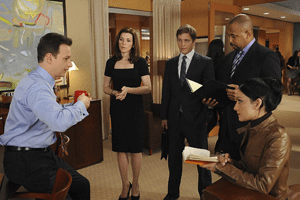
The responsibility of the directors does not prescribe
The new Capital Companies Law makes it easier for shareholders to bring liability actions against the board, which is even presumed guilty in certain types of actions.
The reform of the Capital Companies Law is accompanied by important developments for Spanish companies, which from now on will have to be more accountable for the role played by their managers. But if there is one aspect that has triggered the concern of the administrators, it is the statute of limitations for shareholders to hold them accountable for their decisions at the head of the company, since, practically, it does not prescribe.
Good governance codes and ethical standards have not been able to prevent high-profile cases of corporate corruption and financial engineering scandals, not even in listed companies, which are a priori more exposed to public scrutiny. Finally, the Executive has chosen to tighten the fence by law to avoid fraud.
One of the most important modifications is article 241 bis, which stipulates that "the action for liability against directors, whether corporate or individual, will prescribe four years from the day on which it could have been exercised."
This last phrase is especially relevant. The four-year period was already included in Spanish legislation and, according to the Commercial Code, it began to count from the moment of dismissal of the administrator who committed an irregularity. Even so, this aspect was not clear, since jurisprudence had leaned in favor of starting the countdown at the moment in which the damage occurs.
However, with the new wording, "the four-year period begins to count from the day on which the liability action could have been exercised, that is, from the time when the facts that allow it to be founded are known," explains Javier García de Enterría, partner of Clifford Chance.
Therefore, it does not matter how many years have passed since the administrator committed an irregularity, because the key is knowing when the shareholders were able to have access to the evidence to prove the fact. Experts agree when pointing out that a change of control in the company is the right time, since there is access to documentation about the previous manager.
But this is not the only assumption, since, for example, the four-year period would also begin to count from the moment a fraud becomes public, for example, in the press, even if there has been no change of control in the board. of administration or in the shareholding.
The change in the liability prescription is not the only one included in the law that toughens the conditions for administrators. The percentage of shareholders necessary to exercise these actions against the managers has been reduced from 5% to 3% in the case of listed companies and, in addition, it is no longer necessary to request this action at the meeting, but can go directly to the courts.
Disincentive
Before the reform, the legislation discouraged shareholders from claiming through commercial channels, since if the administrator's malpractice was proven, compensation would be collected directly by the company, as affected.
Furthermore, if the plaintiff lost the battle, he was sentenced to costs, so in no case did he end up being compensated. After the reform, although the situation is not much better, at least, if your case is partially or totally approved, the company reimburses you for the costs of the process.
Another important change is that the law presupposes the guilt of the administrator, although it is only "legally presupposed in relation to acts contrary to the law or the statutes, considering that the simple failure to comply with these rules represents negligence in itself." clarifies García de Enterría.
The legal changes are aimed at prosecuting fraud, but not at good managers. In fact, the new regulation protects directors against management decisions that were made in good faith, but that over time were not correct. The business simply went wrong.
In these cases, it is enough to "prove that the decision was justified" at the time it was adopted, explains the Clifford Chance partner.
www.expansion.com



